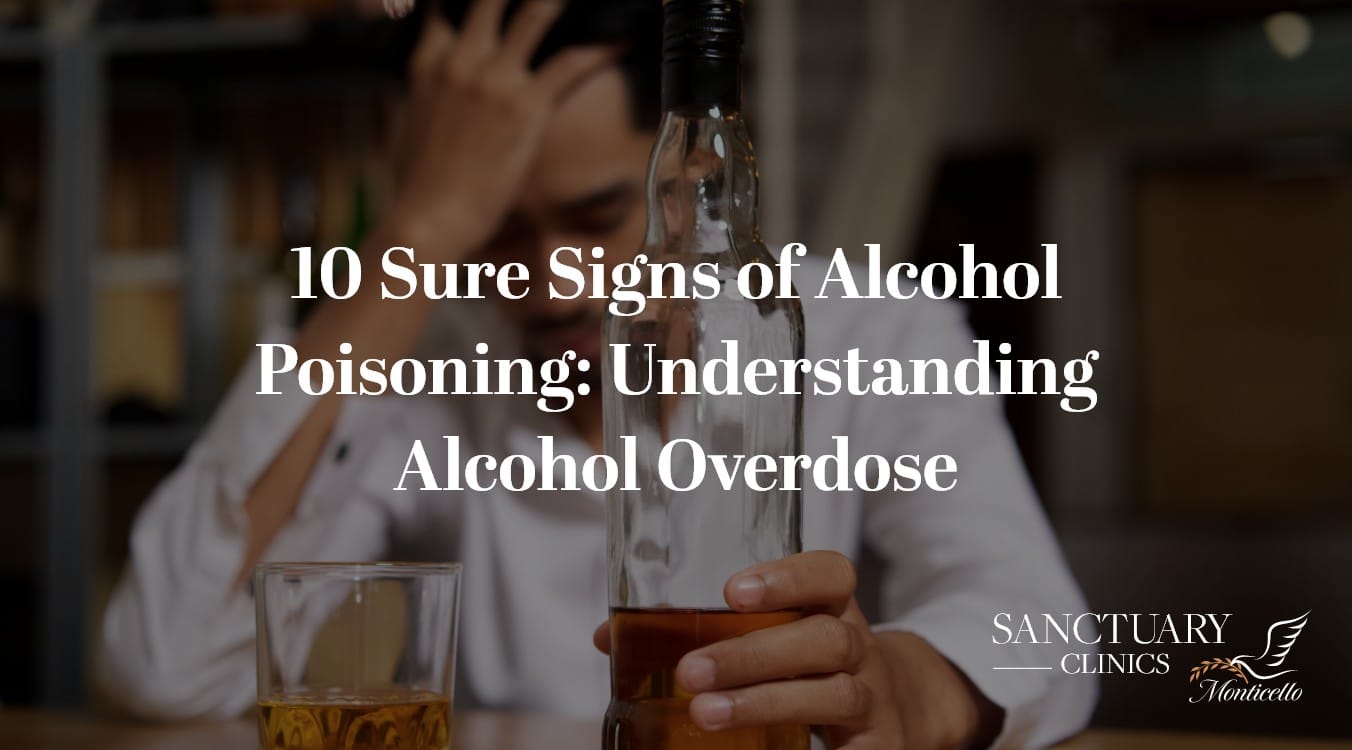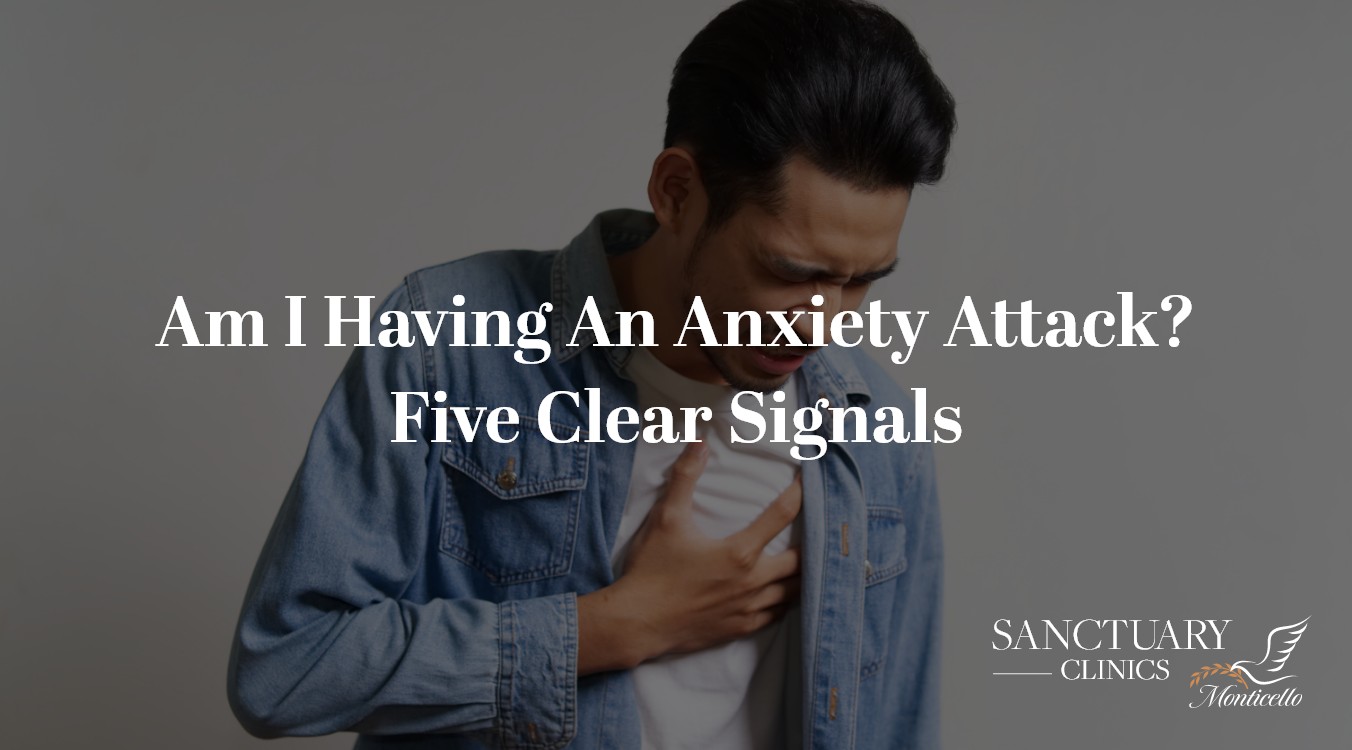Have you ever woken up the next day after a night of drinking and, besides a regular hangover, you feel dread, anxiety, or worry about what happened the night before? Have you felt unable to relax or irritable? Do you have gaps in your memory? If so, you might be suffering from “Hangxiety”.
Hangxiety is a mix of the words “hangover” and “anxiety.” It refers to the day after a drinking binge, when the alcohol effects wear off and thoughts of nervousness and apprehension continue. This happens because your body has metabolized the alcohol you consumed, and your body and brain are trying to recover. Your body is processing physical hangover symptoms, and your brain is struggling to rectify the imbalance of chemicals which are causing your anxiety.

There are several components which can contribute to hangxiety. Alcohol effects your neurotransmitters (gamma-aminobutyric acid and serotonin), which makes you feel laid-back. The more you drink, your brain begins to turn off glutamate, which is what makes you anxious. You will begin to feel more unrestricted. However, when it begins to wear off, your brain will begin recovering its normal chemical balance. It will begin to return its neurotransmitters back to normal and will increase glutamate. This will cause your relaxed feelings to disappear and your anxiety to rise, which is the opposite effect you were looking for while you were drinking. Your sleep patterns will likely also be interrupted.
Hangxiety Symptoms
Hangxiety has many symptoms and they can fluctuate in harshness. Some of the emotional symptoms you can experience are:
- Feeling anxious
- Nervousness
- Feeling uneasy
- Guilt
- Embarrassment
- Feeling overwhelmed
Some of the physical symptoms you can experience are:
- Sweating
- Increased heart rate
- Racing thoughts
- Difficulty in concentrating

All of these side-effects can be made worse if you already have an anxiety disorder. If you already have an anxiety disorder, you could experience an anxiety attack or seizure.
These extreme side-effects are part of alcohol withdrawal syndrome. Alcohol syndrome happens when you suddenly stop drinking after drinking heavily, or greatly reduce your alcohol intake. When you stop drinking or cut back, you could experience physical symptoms like tremors, high blood pressure, nausea, and dehydration. Your cortisol (which is your stress hormone) can also be set off after drinking, which can make you feel more anxious.
Get Help Today.
We are here to help you through every aspect of recovery.
Let us call you to learn more about our treatment options.
We are here to help you through every aspect of recovery. Let us call you to learn more about our treatment options.
Mixing Substances
Mixing drugs with drinking greatly raises the risk of hangxiety the next day. Especially drugs which can bring on anxiety as they wear off, such as cocaine, ketamine, and MDMA.
Binge drinking is defined by the NHS (National Health Service) as drinking just to get drunk or drinking heavily over a short space of time. They recommend not to exceed in a single session eight units of alcohol for men, and six units for women. This means about four pints of beer for men and three pints for women (wine contains 1.5 units). They also advise during one week, men and women shouldn’t exceed 14 units.
Avoiding and Managing Hangxiety
There are many ways you can avoid hangxiety. Certainly, the best choice is not drinking excessively in the first place. But these steps can limit your risk:
- Drink lots of water
- Drink something else in between alcoholic beverages
- Drink moderately and slowly
- Use smaller glasses
- Eat before and while you drink
- Set a drink limit and keep with it
- Finish one drink before you start a new one
- Simply just say no
If you do find yourself experiencing hangxiety, there are several things you can do to manage it.
- Get plenty of sleep
- Take a bath
- Listen to calm music
- Walk
- Do things for stress reduction like yoga, mindfulness, and deep breathing.
- Hydrate
- Eat
- Rest
- Focus on something like TV or music
- Talk to a friend
- Take non-prescription pain medication
- Don’t be extra hard on yourself

If you are experiencing hangxiety, two things you need to avoid are, (1) more alcohol, and (2) caffeine or other stimulants.
Hangxiety usually only lasts for 24 hours. But if it’s something you’ve experienced more than once, it may be indicative of a drinking problem. Please don’t hesitate to talk to a professional and seeking treatment.
Don’t let a substance abuse problem to rob you of your health and wellbeing.
Sanctuary Clinics is the #1 Christian Mental Health and Substance Treatment Program in America. Call and speak with someone RIGHT NOW.
Get Help Today.
We are here to help you through every aspect of recovery.
Let us call you to learn more about our treatment options.
We are here to help you through every aspect of recovery. Let us call you to learn more about our treatment options.








